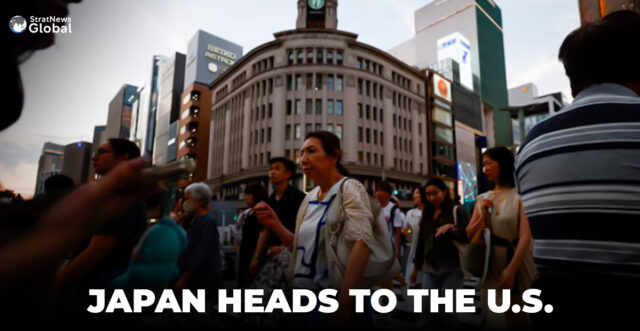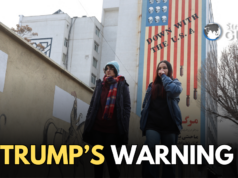Japanese Prime Minister Shigeru Ishiba on Friday established a task force to lead trade negotiations with the United States. The team will be headed by Economy Minister Ryosei Akazawa, a close aide to Ishiba, who, according to domestic media reports, plans to visit Washington next week.
While offering no specific date, Akazawa said he hopes to meet his counterpart, U.S. Treasury Secretary Scott Bessent, as soon as possible to kick off bilateral trade talks that may include currency policy.
“I understand Mr. Bessent is very fond of Japan and undoubtedly has a good impression on our country. He also has a deep financial background, so could be a tough counterpart to negotiate,” Akazawa told a news conference.
“He seems to mention non-tariff barriers and currency policy as among topics he’d like to discuss. If so, we will obviously respond during the discussions,” he said, adding that Japan will not take any topic off the table.
Automobile Import Duty
The first step between Japan and the United States would be to agree on what themes to prioritise, Akazawa said, adding that no specific agenda has officially been set yet.
In a stunning reversal, U.S. President Donald Trump said on Wednesday he would temporarily lower the hefty duties he had just imposed on dozens of countries while further ramping up pressure on China.
The “reciprocal” tariff imposed on Japan has been cut to the universal 10% rate, from the initial 24%, during the 90-day pause. A 25% duty still applies for automobile imports.
37-Member Task Force
Akazawa, together with Chief Cabinet Secretary Yoshimasa Hayashi, will lead the 37-member task force consisted of staff from various ministries to seek concessions from the United States on tariffs.
A former transport ministry bureaucrat, Akazawa is known as among Ishiba’s closest aides and has deep ties with the domestic agriculture sector. The current role as economy minister is his first ministerial post.
Several domestic media reported on Thursday the government hopes to send Akazawa to Washington next week to kick-start tariff talks with the United States.
Lawmakers Want Tax Cuts
While government officials have revealed little about Tokyo’s negotiating strategy with Washington, lawmakers have begun pressuring the government to take steps to cushion the potential economic blow from the U.S. tariffs.
The ruling coalition, consisted of Ishiba’s Liberal Democratic Party (LDP) and its partner Komeito, is considering requesting a cut to Japan’s sales tax rate, the Yomiuri newspaper reported on Friday.
The tax cut will be put in place temporarily and target food items, which have seen prices rise steadily, the paper said, citing sources close to Komeito. Japan’s sales tax rate is currently 10% with a lower 8% rate applied to food items.
As implementing tax cuts would take time as doing so would need parliament to pass legislation, the government should also deliver cash payouts to households, Komeito head Tetsuo Saito said at his party’s meeting on Thursday, according to Yomiuri.
Too Early To Judge
But some LDP officials are cautious of cutting the sales tax as the levy is a key source of revenue to pay for ballooning social welfare costs of Japan’s rapidly ageing population, the Yomiuri said.
The calls for expansionary fiscal policy come ahead of an upper house election expected in mid-July, which the LDP is likely to struggle given Ishiba’s low approval ratings.
The government has ruled out cutting taxes and compiling a supplementary budget to fund cash payouts, saying it was too early to judge how Trump’s tariffs could affect the economy.
As Trump’s back-and-forth comments on tariffs rattle markets, Finance Minister Katsunobu Kato said on Friday excessive currency market volatility would hurt the economy – signaling Tokyo’s alarm over rapid moves in the yen.
The dollar slumped on Friday as waning confidence in the U.S. economy prompted investors to ditch U.S. assets to the benefit of safe havens like the yen. The U.S. currency slid 0.9% to 143.10 yen, the weakest since October 1.
(With inputs from Reuters)





